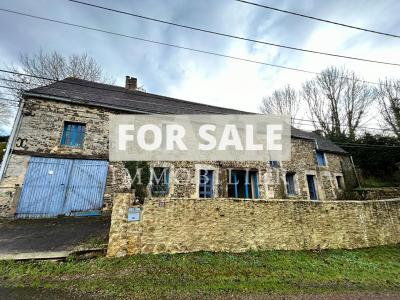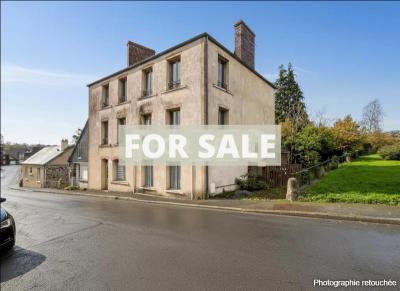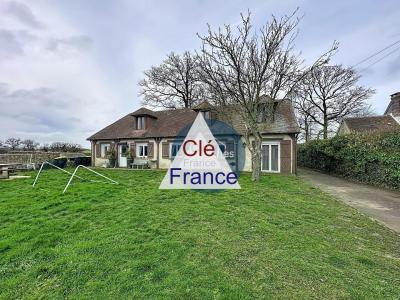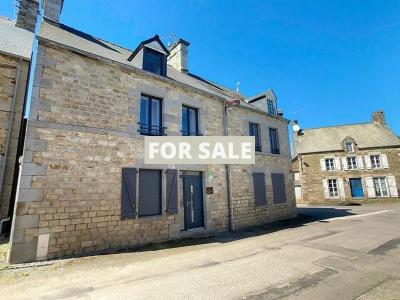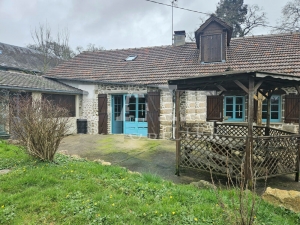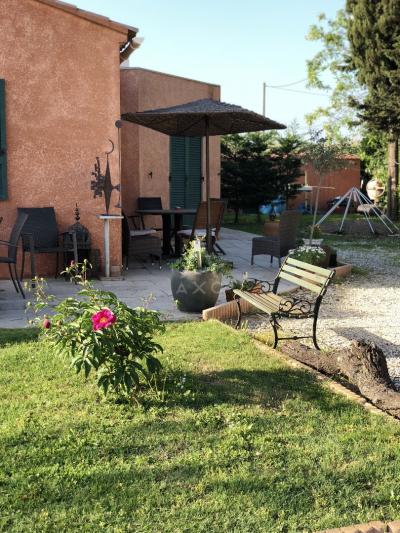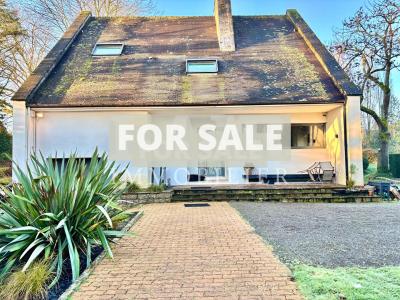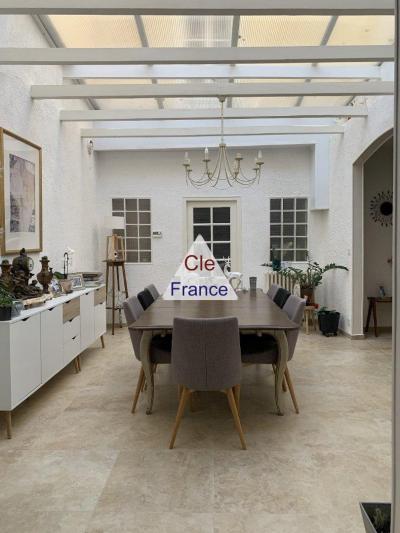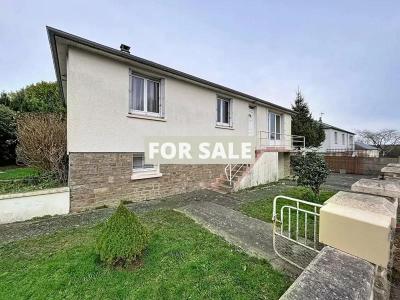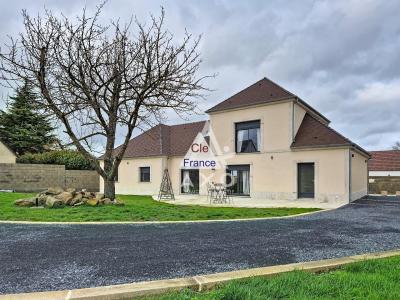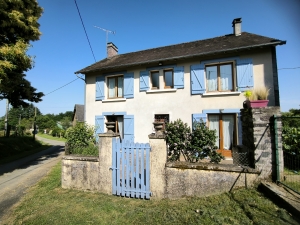A quick tour around the Regions of France
Whatever part of France you are looking to buy a house in we have a quick guide for you here. France is very diverse and property in France follows this rule in a very distinctive way from 'Colombage' houses in Normandy, Fisherman's cottages in Brittany, holiday homes in the Loire and to stunning Villas in Provence. There is something for everyone!
Each region is divided into smaller departments with each having its own identity and strengths. We have property for sale in all of the following regions and some in other region of France. Contact us if you are looking to buy French Property and gain access to the best network of English and French Estate agents.
 Aquitaine
Aquitaine
The Aquitaine region, capital city Bordeaux, is one of the greatest historic regions in France; it is also one of the largest and most varied regions stretching from the foothills of the Massif Central to the north, to the Spanish border in the south, with around 200 kms of coastline. In the Middle Ages, Aquitaine was allied with the Plantagenet kings of England, and the region has many historic connections with the British Isles, especially through the wine trade and now tourism of course.
Aquitaine is a varied region for example in the northwest part of Aquitaine, comprising the departments of the Dordogne (24) and the Lot-et-Garonne (47) the landscape is of gentle hilly country, with large vineyards in the lower lying areas, and with woodland and mixed farming on the higher north east area.
The middle of the region, following the line of the Gironde estuary is one of the most famous wine-producing areas in France. Bordeaux, regional capital and capital of the Gironde department (33), is a magnificent city set on the Garonne river. The southern part of Aquitaine is made up of two distinct areas, the departments of Landes (40) and the Pyrénées-Atlantiques (64).
Dordogne (Dept 24), Gironde (Dept 33), Landes (Dept 40), Lot-et-Garonne (Dept 47), Pyrenees-Atlantiques (Dept 64).
Click here to see all of our properties in Aquitaine
 Brittany
Brittany
This wonderful maritime region is steeped in history and legend, from the earliest settlers of the Neolithic period, whose ancient Menhirs and Dolmens are still visible today, through the Arthurian tales of knights and chivalry, to the Renaissance Dukes of Brittany whose manor houses and Chateaux can be visited today.
However, the abiding image of Brittany for many is its quaint fishing ports and rugged coast line. It is the western most point in France, stretching out into the Atlantic with old maritime fortresses and light houses dotting the coastline. We have some great coastal property for sale in Brittany, France.
The Brittany region consists of 4 departments:
Finistere (Dept 29), Cotes-d'Armor (Dept 22), Morbihan (Dept 56) and Ille-et-Vilaine (Dept 35).
Click here to see all of our properties in Brittany
 Centre
Centre
While it does, just about include the point which is the geometric "centre" of France, the region known as "le Centre" does not generally coincide with the middle of the country; confused?.
It is more accurately the centre section of northern France. An area stretching from a latitude slightly north of Paris, down to the Limousin and Auvergne regions, it is bordered to the west by Normandy, the Pays de la Loire region and Poitou-Charentes, to the east by the Paris region (Ile de France) and Burgundy. Its regional capital is the glorious city of Orléans.
As for the exact location of the "centre" of France, several communes in the south of the region, some in the north of the Auvergne, and some maverick villages in-between are rivals for the title, depending on the criteria used. But according to various criteria, the centre of France lies at some spot in the commune of Saint-Armand-Montrond, in the south of the Cher department.
The Centre region consists of 6 departments:
Cher (18), Eure-et-Loir (28), Indre (36), Indre-et-Loire (37), Loire-et-Cher (41) and Loiret (45).
Click here to see all of our properties in Centre
 Ile de France
Ile de France
This region include the capital city of France along with other departments fanning out from the Seine river and offers the best of what France has to give in terms of property, lifestyle and culture.
Paris is a beautiful city. It has everything a city lover could possibly desire and perhaps a bit more! Chic little boutiques in the back streets and huge department stores on the vast avenues and boulevards, wonderful art galleries and intimate performance spaces, superb restaurants, huge street antique and flea markets. There are elegant squares and pretty parks and the banks of the river Seine must be the most romantic waterfront anywhere in the world.
Lots of people will agree that Paris is on of Europe's most exciting cities, in my opinion it is the best, a place that has everything for the visitor. Paris on a day trip, Paris in the Spring, Paris for a week or for a lot longer, it is a city that has it all! Museums, theatres, shops, fantastic historic monuments, a beautiful riverside and much more.
The Ile de France region consists of 8 departments:
Paris (75), Yvelines (78), Seine-et-Marne (77), Val-d-Oise (95), Essonne (91), Hauts-de-Seine (92), Seine-Saint-Denis (93) and Val-de-Marne (94).
Click here to see all of our properties in Ile de France
 Languedoc Roussillon
Languedoc Roussillon
The area always used to be known as simply "Languedoc" and covered a large part of southern France, the modern Languedoc-Roussillon is a much smaller area, being the area covered by the Eastern Pyrenees department. It was, in the past, the northern part of Catalonia which extended from Spain, and some people here still speak Catalan as well as French.
The regional capital is the city of Montpellier, a thriving modern city in the Hérault department, with a historic and interesting centre; other major cities in the region are Nimes, Narbonne, Sete and Perpignan.
The coast of Languedoc is characterised by long sandy beaches and a modern tourist infrastructure such as the twentieth-century resorts of Cap d'Agde, Palavas, or Narbonne Plage.
The Languedoc-Roussillon region consists of 5 departments:
Herault (34), Aude (11), Gard (30), Lozere (48) and Pyrenees-Orientales (66).
Click here to see all of our properties in Languedoc Roussillon
 Limousin
Limousin
Lying between an altitude of 200 and 1000 metres, the Limousin is mostly a region, as you may imagine of hills, valleys and mountains. The highest point in Limousin is the Mont Bessou, 977 metres, near Ussel, in the Corrèze department, the highest point of the Plateau de Millevaches, which borders the neighbouring Auvergne region.
Forming the north western edge of the Massif Central, Limousin is a region that is relatively well watered, with lots of rivers and lakes. The south western part of the region, including the area round Brive, can be very hot in summer.
Rural Limousin is an land of deciduous woodland, of sheep grazing land in the north, and an upland area of spruce forests and grazing land on the Plateau de Millevaches (this is the plateau of the thousand springs, not a thousand cows, there are many more than that).
The Limousin region consists of 3 departments:
Creuse (23), Correze (19) and Haute-Vienne (87).
Click here to see all of our properties in Limousin
 Normandy (Upper and Lower)
Normandy (Upper and Lower)
With its proximity and excellent transport links with the U.K, Normandy is the ideal choice for those looking for either a holiday home or permanent residence.
Its tranquility, beautiful countryside and traditional way of life have long attracted buyers not only from abroad but from elsewhere in France. It has some of France's most visited attractions; Mont st Michel is the second most visited site in France after the Effiel Tower. The World War II beaches are an emotional but essential visit as is the Bayeaux Tapestry.
Along with the rolling countryside of the 'Swiss Normande" area it is not surprising that Normandy is one of the most visited regions of France. We have many Farmhouses for sale in Normandy, France.
This region is divided into Upper and Lower Normandy and comprises the following departments:
Upper Normandy: Seine Maritime (Dept 76), Eure (Dept 27).
Lower Normandy: Calvados (Dept 14), Manche (Dept 50) and Orne (Dept 61).
Click here to see all our Properties in Upper Normandy
Click here to see all of our properties in Lower Normandy
 Midi Pyrenees
Midi Pyrenees
Unlike many regions of France Midi-Pyrénées is actually a 20th century invention, created as a result of the "regionalisation" process that took place in the 1970s, I bet you did not know that!
Like the Pays de la Loire region further north, where I lived for 12 years until 2013, Midi-Pyrénées was established in order to create a region around a main town, in this case the fantastic city of Toulouse.
The large former provinces of Guyenne, Gascony, Languedoc and smaller areas, within these larger areas, such as Quercy, Rouergue, Albigeois and Foix are all either part or fully in the Midi-Pyrenees.
It is not too hard to understand that Midi Pyrénées is essentially a rural area; in fact, apart fromToulouse, it is a very rural area (just 55 inhabitants per km2, this is approx. half the national average), it is the leading agricultural region of France.
The Midi-Pyrenees region consists of 8 departments:
Lot (46), Tarn (81), Haute-Garonne (31), Tarn-et-Garonne (82), Aveyron (12), Ariege (09), Haute-Pyrenees (65) and Gers (32).
Click here to see all of our properties in Midi Pyrenees
 Nord Pas de Calais
Nord Pas de Calais
This is a region bordered on the north by the English Channel, to the northeast by Belgium, and to the south by the Picardy region. It is made up of just two departments, see below. In historic terms, this region covers most of what was once the French part of Flanders, and the old province of Artois (think of Stella). To be honest, it is not a region that most people tend to think of as a destination, but think again.
One thing that is above all in favour of the Nord–Pas-de-Calais region is its proximity to the south of England and the Low Countries to the east. Lille is less than a two hour train journey from London by Eurostar, and Calais is even closer.
For anyone travelling by car from the UK, this region is very accessible for a weekend break, take advantage of the cheap short stay return fares offered by Euro-tunnel and the various Ferry companies. What most people tend to do is drive through the region on the way to somewhere else which really is not fair as the region has a lot to offer.
The Nord Pas de Calais region consists of just 2 departments:
Pas de Calais (62) and Nord (59).
Click here to see all of our properties in Nord Pas de Calais
 Pays de la Loire
Pays de la Loire
This is a diverse and fascinating region bordered by the Bay of Biscay to the west, Brittany to the north and west, Lower Normandy to the north, Centre to the east, and Poitou-Charentes to the south.
From the rural beauty of Mayenne in the north to the sophistication of the Loire Valley Chateaux this charming region has something to suit all tastes. The Mayenne has the largest concentration of rivers and lakes in France and is also home to the 'horse stud farms' of the rich and famous.
The Pays de la Loire includes some of the most sought after property in France, but also offers some of the best value. We have many varied property for sale in Pays de la Loire, France.
The region is divided into the following departments:
Loire-Atlantique (Dept 44), Maine-et-Loire (Dept 49), Mayenne (Dept 53), Sarthe (Dept 72), Vendée (Dept 85).
Click here to see all of our properties in Pays de la Loire
 Picardy
Picardy
Picardy or Picardie consists of just three departments, the Aisne (02) capital Laon, the Oise (60), capital Beauvais and the Somme (60), capital Amiens and this is also the regional capital. The southern part of this modern region, virtually all of the Oise department, was not part of the original Province of Picardy, it was added when the region was created in the 20th century.
The triangle between Paris, Amsterdam and London is of course the historic centre of warfare action in western Europe, Picardy is an area with a very interesting history indeed.
It was this region of France that witnessed some of the most famous battles of French and European history, notably the battle of the Somme and the battle of Crécy.
And in the course of the last 1000 years or so the area that is now the main part of modern Picardy was ruled over by the English, the Habsburgs, the Spanish and the French; I said it has a very interesting history indeed.
The Picardy or Picardie region consists of only 3 departments:
Aisne (02), Oise (60) and Somme (80).
Click here to see all of our properties in Picardy
 Poitou-Charentes
Poitou-Charentes
The Poitou-Charentes region conceals many attributes, as well historical and cultural there are also culinary. Like Aquitaine the region was ruled by the English and it is only in 1373 that the duchy was attached to the kingdom of France. Famous for its religious architecture and its multiple Romance abbeys, the Poitou-Charentes region is today a great destination for countryside lovers.
The Green Venice of the Poitevin Marsh which you visit by boat will enchant you with many scents and colours. Poitou-Charentes is also a place looking towards the future in the shape of the Futuroscope Park which attracts visitors from all over the world. Lots of Villas for sale in Poitou Charentes, France.
And don't forget the stunning and exclusive island of Ile de Re where life is at a completely different pace.
The region is divided into the following departments:
Charente (Dept 16), Charente-Maritime (Dept 17), Deux-Sèvres (Dept 79), Vienne (Dept 86).
Click here to see all of our properties in Poitou-Charentes
 Provence Alpes-Cote dAzur
Provence Alpes-Cote dAzur
You know it... ever since Peter Mayle's novel 'A Year in Provence' made it into the international best-sellers list, Provence has held a special fascination for people from all over the world.
But to suggest that Peter Mayle somehow discovered Provence and put it on the map, would be a serious mistake and could cost you dearly if you were to mention this to a 'local'. The book and TV series that followed portrayed, in a reflective fashion, the life of a French village that, to be fair, could have been located in any region of France.
For me Provence has always been very firmly on the map and I have spent several holidays relaxing there in the almost permanent sunshine.
In historical terms, Provence is actually older than France itself, it was the centre of culture, learning and commerce long before Paris acquired the importance it has today.
The Provence Alpes-Cotes d'Azur region consists of 6 departments:
Var (83), Vaucluse (84), Hautes-Alpes (05), Alpes-de-Haute-Provence (04), Alpes-Maritime (06) and Bouches-du-Rhone (13).
Click here to see all of our properties in Provence Alpes-Cotes d'Azur
We at Cle France specialise in Property for sale in France through our network of Agents and French Registered High Street Estate Agents. We have sold thousands of houses for sale in France over the years and have helped many find and buy their dream home in France.
We can also help you with everything to do with buying a house in France including getting a mortgage, organising currency exchange, renovation advice, property surveys, planning permission, French translation, opening a bank account and everything to do with French property sales.
All our prices are quoted as FAI (agency fees included) unless otherwise stated and 'notaire' fees are around 7% to 8% (on average at 100K purchase price) but feel free to ask us for an exact amount on any particular French property for sale you are interested in.
Indeed please feel free to use the 'MAKE AN ENQUIRY' tab above to ask us any questions you have about buying a property in France. Our UK based enquiry office and staff will guide you through the entire buying process step by step from your first contact right up to taking ownership and beyond, all free of charge.
So when you buy through Cle France you can be confident that you are paying no more than the standard commission rates you would pay anyway, but you have the added benefit of a bi-lingual support team.
For everything you need to know about French property for sale visit www.clefrance.co.uk


